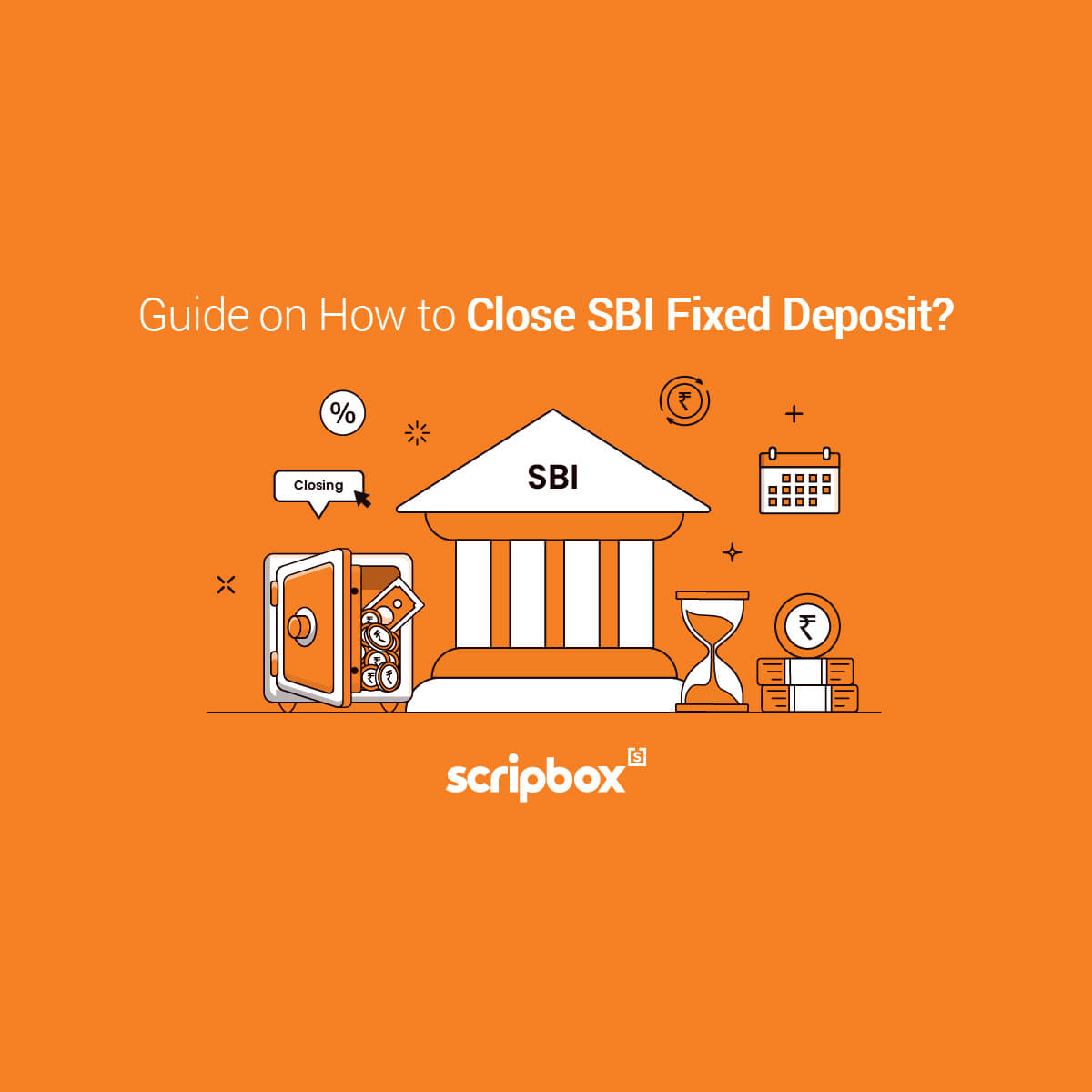Appointing a nominee for investments might seem like a small and optional procedure. However, it has a lot of importance after the death of the investor. Also, it is important to appoint a legal heir and make a will to ensure the assets go to the rightful heirs. But are nominees the same as legal heirs? What is the difference between the two? This article covers FD nominee, legal heir rights, and why it is important to appoint them in detail.
Who is a Nominee?
A nominee is a person appointed by the investor who is entitled to receive the proceeds of the investments made by the original investor upon his or her death. However, they are just caretakers of the assets and not owners.
According to Indian law, nominees have the right and duty to facilitate transactions in case of the unfortunate death of the legal owner of the asset. They will get the asset and keep it until they are legally bound to transfer it to the legal heirs of the original investor. The nominee will hold the money or assets only as a trustee until they transfer it to the legal heirs of the deceased.
Learn: Fixed Deposit Auto Renew and Repay System
Why should you add a Nominee for your Fixed deposits?
The Nominees are appointed in fixed deposits and other investments only because the investments of the actual investor are not held back by the banks and other organizations and go to a person whom the investor can trust. Also, it gives assurance to the investor that the nominee will ensure that the assets go to all the legal heirs without any problem.
In case the deposit holder does not add a nominee, then legal heirs have to go through the hassle of producing proofs of relation and death certificate to receive the proceeds. If the nominee is appointed, the entire process is eliminated, and the nominee will transfer the money to the legal heirs.
Things to Remember while Appointing a Nominee
Following are the things one should remember while appointing a nominee:
1. Choose the nominee carefully
Legally, an individual can appoint anyone as a nominee. However, it is advisable to nominate close family members and legal heirs as nominees. It’s always better to have the FD nominee and legal heir as the same person to avoid any potential disputes regarding the inheritance rights.
A nominee will have to hold the assets indefinitely if no legal heir claims them. In India, the law doesn’t prescribe a particular time before which the legal heir has to claim the assets.
Having the nominee and legal heir as the same may lead to some complications. For example, if other legal heirs do not claim their share of the asset, then the FD nominee can presume that the legal heir has given up their rights. The reasonable time before which the heirs’ act will often be dealt by the high court on a case by case basis.
Therefore it is essential to have a nominee with whom one can trust their investments.
2. Ensure the details are right
While nominating a person for the investments, it is essential to make sure that there are no spelling errors. All the details of the nominee, such as name, address, date of birth, and relationship with the account holder, have to be correct to avoid any kind of disputes. Also, in the case of more than one nominee, it is very important to mention the percentage share of each.
If the nominee is a minor, then one has to add an elderly family member’s name as their guardian.
3. Update the details
Most investors provide the nomination details at the time of buying the asset. Often they forget about it. However, it is advisable to check the nomination details from time to time.
Updating the details is necessary to avoid any potential disputes. Also, if the nominee’s spelling changes or name changes, it is very important to update the details. Furthermore, in case on the death of the nominee, one has to make the changes to the nominations and update them across all documents.
All institutions and banks also transfer the assets to the nominee without submitting any succession certificate. The family will not be able to access or get the settlement of the investments in the interim. Therefore, it is necessary to check and update all the nomination details from time to time.
What is a Legal Heir?
The legal heir is a person or persons who is entitled to receive the assets and property of the deceased person as per the will or succession laws. Will is a legal document that specifies the wish of the owner of properties regarding the distribution of assets after his/her death.
According to Hindu succession law, if the man leaves the property behind without a will, then the property will be passed onto Class I heirs. Else Class II heirs can claim it.
Class I heirs are widow, children and the mother.
Class II heirs are father, grandchild, great-grandchild, sister, brother, and other relatives. For a woman, the husband and children get the property in equal share.
Fixed Deposit Nominee vs Legal Heir – What’s the Difference?
| Basis of Difference | Fixed Deposit Nominee | Fixed Deposit Legal Heir |
| Who is it? | Nomination is only a clause that allows the nominee to claim assets as ‘custodian’ in the event that the deposit owner. | A legal heir is a person who has the right and entitlement to inherit the deceased person’s money and property under the terms of a signed legal will. |
| Responsibility | Guardian to the deposit amount till the corpus is given to the legal heir. | A person who is entitled to the deposit amount in case of death of the deposit holder. |
| Ownership of Assets | The nominee doesn’t get ownership of the assets. They are just trustees/ custodians. | The legal heir is entitled to the fixed deposit corpus in case of the depositor’s death. |
| Absence of a Will | The nominee will be the trustee for the funds and is legally bound to transfer the amount to the legal heirs. | In case of no will, the succession laws decide the legal heirs. As per the laws, the structure of succession is predetermined. |
Why should you add a Legal Heir for your Fixed Deposits?
In his/her will, an investor should add who are the legal heirs for all the investments, property, and assets. When the account holder mentions the legal heir details, then all the investment proceeds from the fixed assets will go to them through the nominee, if any.
Else, the legal heirs will have to produce various proofs like a death certificate, and proof of relationship with the deceased etc. To avoid all such hassles for the legal heirs, it is better to distribute the assets post his death if the investor or owner makes a will.
What Happens if no Nominee or Legal Heir is Appointed?
In case an individual does not appoint a nominee, then the bank or the institution will try to trace out the legal heirs of the investor. If they fail to trace the legal heirs, then banks keeps the money in a separate account, and they will wait for someone to claim it.
Whoever tries to claim the money will have to prove their relationship with the deceased investor or account holder. They have to either submit a legal heir certificate or succession certificate.
It becomes a great hassle if the depositor does not nominate anyone for their investments. The hassle isn’t just for the bank but also for the legal heirs.
What Happens if no will is Created?
No creating a will before dying refers to Intestate. If an individual dies without creating a will, then the wealth of the person is divided on the basis of the Hindu Succession Act, 1956 or Muslim Law, etc. As per the Hindu Succession Act, 1956, the property of a Hindu male dying intestate will first be distributed among the Class I heirs.
If there are no Class I heirs, then the property goes to Class II heirs. If no Class I or II heirs are available, then the property will first go to ‘Agnates’. Agnates are a distant blood relative of male lineage). If no agnates are available, then it goes to ‘Cognates’. Cognates are distant blood relatives of male or female lineage. If there are no cognates as well, then the property will go to the government.
Following people qualify as Class I heirs:
- Son or Daughter
- Widow
- Mother
- Son or Daughter of a predeceased Son
- Son or Daughter of a predeceased Daughter
- Widow of a predeceased son
- Son or Daughter of a predeceased son of a predeceased son (3 levels)
- Widow of a predeceased son of a predeceased son
Those who are listed first among the heirs stated in Class II receive the property simultaneously and to the exclusion of those in subsequent entries.
Following people qualify as Class II heirs:
- Father
- (1) Son’s daughter’s son (2) son’s daughter’s daughter, (3) brother, (4) sister.
- (1) Daughter’s son’s son, (2) daughter’s son’s daughter, (3) daughter’s daughter’s son, (4) daughter’s daughter’s daughter.
- Brother’s son (2) Sister’s son, (3) brother’s daughter, (4) Sister’s daughter.
- Father’s father. Father’s mother.
- Fathers widow, brother’s widow.
- Father’s brother, father’s sister.
- Mother’s father, mother’s sister.
- Mother’s brother, mother’s sister.
What Happens if no Instructions are given by the Fixed Deposit Holder?
In case if the fixed deposit account holder gives no instructions, then the bank shall try the following two instances:
- Try to contact or get in touch with someone who is related to the deceased fixed deposit holder.
- In case the bank isn’t able to reach any family member, then the bank will reinvest the fixed deposit or invest till someone claims it.
If someone comes forward to claim the money or amount, then the bank will ask them to prove their relationship with the deceased account holder. Upon successful verification, the bank will give access to the fixed deposit funds.
Who will receive the Maturity Proceeds of the Deceased if they have Appointed Both?
Proceeds from FDs will go to the nominee and not to the legal heir of the deceased. However, the nominee gets the money only as a trustee.
In case the legal heirs of the deceased claim the money, then the bank will not hold the money to be given to the nominee. However, the nominee will only act as the trustee of the money until they are legally bound to pay the legal heirs.
Read also Types of Bank Accounts in India
Explore Best Banks in India
Frequently Asked Questions
The nominees and legal heirs of the deceased aren’t the same. The Nominees receive the investment proceeds and assets upon the death of the investors. However, FD nominee is only the trustee and has the rights for holding the assets on behalf of the legal heir. On the other hand, the legal heir is entitled to get the assets of the deceased as per the succession laws.
If the investor is alive, then-nominee cannot break the fixed deposit. However, in case of the death of the depositor, the nominee can withdraw the money from the investor’s account after providing identification proof.
In case the FD holder dies during the tenure of the FD, the nominee will get the FD proceeds and at the later stage, the will go to the legal heir based on the will or succession.
In case the FD holder dies without a nominee, then the legal heir has the rights to claim the amount. However, they must produce proof of relation which must be obtained from the court.
For Joint FD accounts along with the other holder and only one FD holder dies, then the surviving holder can continue the FD in his or her name. In case of the death of both the joint holders, the nominee will get the investment proceeds.
A nominee is merely a person responsible for transferring the deceased’s assets to the rightful heirs. However, there are few exceptions. In the case of insurance, property in a housing society, bank deposits, mutual funds, and other investments, the nominee will receive the property and the money only as a trustee. They will have to transfer it to the legal heir.
In the case of EPFs and shares, the nominee will receive the EPF money and ownership of the shares and not the legal heir.
One can add, change and update nominee details of their FD through net banking of the bank or by physically visiting the bank and placing a request with the bank.
A nominee is a person appointed by the investor who is entitled to receive the proceeds of the investments made by the original investor upon his or her death. However, they are just caretakers of the assets and not owners. According to Indian law, nominees have the right and duty to facilitate transactions in case of the unfortunate death of the legal owner of the asset. They will get the asset and keep it until they are legally bound to transfer it to the legal heirs of the original investor. The nominee will hold the money or assets only as a trustee until they transfer it to the legal heirs of the deceased. Any person who is a first relative can be a nominee for example, spouse, children, siblings, parents, etc.
Explore Fixed Deposit Pages
- Who is a Nominee?
- Why should you add a Nominee for your Fixed deposits?
- Things to Remember while Appointing a Nominee
- What is a Legal Heir?
- Fixed Deposit Nominee vs Legal Heir – What’s the Difference?
- Why should you add a Legal Heir for your Fixed Deposits?
- What Happens if no Nominee or Legal Heir is Appointed?
- What Happens if no will is Created?
- What Happens if no Instructions are given by the Fixed Deposit Holder?
- Who will receive the Maturity Proceeds of the Deceased if they have Appointed Both?
- Frequently Asked Questions
























Show comments